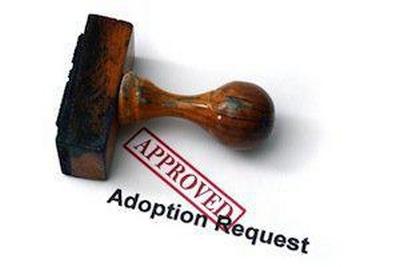Free Initial Consultations
 630-580-6373
630-580-6373With offices in Naperville, Joliet, Wheaton, Plainfield & Chicago
 Divorces can be lengthy, costly, emotional, and very difficult for families. Moreover, several significant issues must be addressed with regard to any children involved.
Divorces can be lengthy, costly, emotional, and very difficult for families. Moreover, several significant issues must be addressed with regard to any children involved.
Whether you are the custodial parent or not, decisions about your child's financial stability are critical and require your full attention. Understanding child support and how it works can help you make the best decisions about your child's care and welfare.
What is Child Support?
Under the law you are responsible for providing your child with financial support. Child support is the money paid to the custodial parent from the non-custodial parent. Generally, child support is paid until a child is 18. Support may be paid for a longer period of time if the child is 19 and in high school or has a disability that requires support. The amount of support can be modified over time if approved by a court and payments are made either directly or indirectly.
 The Illinois Adoption Registry and Medical Information Exchange (IARMIE) program allows birth parents to share important informations with adoptive families and adopted children. Adoptive children may decide that they would like to contact their birth parents and know more about their history. This may be because a child wants to understand aspects of his or her family history or to know more about his or her medical or mental health history. The ability to obtain this type of information can be critical to adopted children.
The Illinois Adoption Registry and Medical Information Exchange (IARMIE) program allows birth parents to share important informations with adoptive families and adopted children. Adoptive children may decide that they would like to contact their birth parents and know more about their history. This may be because a child wants to understand aspects of his or her family history or to know more about his or her medical or mental health history. The ability to obtain this type of information can be critical to adopted children.
In the past, questions about birth parents may have been difficult to obtain. However, it is now possible for adopted children to get basic information about their birth parents while allowing parents to remain anonymous. If you are a prospective adoptive parent, adopted child seeking information on your birth parents, or parent considering adoption, it is important to understand how the Illinois Adoption Registry works.
 Divorce is often described as a battle—a contentious fight between spouses. However, this does not have to be the case with every divorce. Collaborative divorce, which may not work for everyone, can work well for some couples. If parties can put aside some of the feelings they may have about their spouse, it may be be possible to cooperate with each other and have a less contentious divorce.
Divorce is often described as a battle—a contentious fight between spouses. However, this does not have to be the case with every divorce. Collaborative divorce, which may not work for everyone, can work well for some couples. If parties can put aside some of the feelings they may have about their spouse, it may be be possible to cooperate with each other and have a less contentious divorce.
What is a Collaborative Divorce?
When a couple divorces they must make important decisions about property distribution, spousal support, and child custody. If the couple chooses to pursue a collaborative divorce, then they are choosing to work together to decide these important questions. Both spouses must hire their own attorneys who are trained to make important decisions in a divorce. Each spouse and his or her attorney will have a series of meetings to help the couple come to an agreement about the divorce. Collaborative divorce focuses on resolving issues without placing blame on either spouse.
 Many people decide to expand their family by adopting a child with special needs. This can be both challenging and rewarding for a family. Financial support can help a family deal with and overcome these challenges. Fortunately, state and federal adoption assistance programs can help prospective parents pay for expenses that will help their special needs child have the best life possible with their new family.
Many people decide to expand their family by adopting a child with special needs. This can be both challenging and rewarding for a family. Financial support can help a family deal with and overcome these challenges. Fortunately, state and federal adoption assistance programs can help prospective parents pay for expenses that will help their special needs child have the best life possible with their new family.
A Special Needs Adoption
A special needs child may have a developmental, behavioral or learning challenge. The challenge could be caused by a genetic mental health issue or exposure to drug and alcohol. In Illinois, a special needs child is a child who has a need or circumstances that might prevent adoption. The financial support is meant to remove these potential barriers and encourage an adoption. In order to qualify, the child must meet one or more of these criteria:
 When a couple finally makes the decision to get married, they can get caught up in the romantic idea of living happily ever after. While this is normal, the couple should also think about the legal aspects of getting married.
When a couple finally makes the decision to get married, they can get caught up in the romantic idea of living happily ever after. While this is normal, the couple should also think about the legal aspects of getting married.
There is an important legal process that must be followed and couples may want to think about other legal issues such as a prenuptial agreement. Thinking about these practical aspects of marriage is not very romantic, but it can help a couple talk through important issues that could result in divorce before the couple gets married.
The Marriage Process
The wedding, reception, and honeymoon are the exciting parts of getting married. They are also the non-legal parts of a marriage. Marriage, in reality, is a mundane legal process that requires a couple to take care of a few details before their marriage is legally recognized. A couple must fill out a marriage application form. Under Illinois law, the marriage application must include:
 Adoption is one of the best ways to create a family. It does not matter if you are a couple looking to expand your family or a single person looking to create a family on your own; adoption provides a gift to both the adoptee and his or her newly adoptive parents. There is no single idea family type, and any person looking to love a child should look into his or her options for adoption.
Adoption is one of the best ways to create a family. It does not matter if you are a couple looking to expand your family or a single person looking to create a family on your own; adoption provides a gift to both the adoptee and his or her newly adoptive parents. There is no single idea family type, and any person looking to love a child should look into his or her options for adoption.
There are several factors that prospective adoptive parents will need to understand and do before beginning the adoption process. One of the most important issues to consider is the age of the child the parents might adopt.
Adopting a Newborn or a Toddler
Some adoptive parents want to have the same experience that biological parents would have with their own child. Hence, adoptive parents may wish to adopt a baby or a very young child. However, adopting a baby or a toddler may take longer, as there are generally more families looking to adopt young children than there are young children available for adoption. Still, adopting a young child often allows adoptive parents to have a full medical history for their child and their child’s health care.
 Couples and individuals who want to adopt a child may not be familiar with the options available for adoption. Just as there are many different types of families, there are many different type of adoption. Understanding the different adoption options can help you figure out which type of adoption is the best for your family.
Couples and individuals who want to adopt a child may not be familiar with the options available for adoption. Just as there are many different types of families, there are many different type of adoption. Understanding the different adoption options can help you figure out which type of adoption is the best for your family.
Independent Adoptions
Often times couples want to adopt a baby. Generally, there are always more people who want to adopt babies than there are babies available for adoption. The adoption of an infant can be accomplished independently—through an independent adoption prospective parents work with an intermediary to adopt a child. Independent adoptions allow adoptive parents to directly adopt a child from his or her biological parents.
Agency Assisted Adoption: Alternatively, prospective adoptive parents can adopt a child through an agency. These types of adoption have a longer process when compared to independent adoption since the agency needs time to identify a child available for adoption.
 A sexual offense criminal conviction may have significant consequences on a parent’s visitation and custody rights. This is true even if the offense did not involve a child. A court may consider a parent's sex offense conviction during the divorce. If the conviction happens after the divorce, the other parent may request a modification to visitation or custody rights.
A sexual offense criminal conviction may have significant consequences on a parent’s visitation and custody rights. This is true even if the offense did not involve a child. A court may consider a parent's sex offense conviction during the divorce. If the conviction happens after the divorce, the other parent may request a modification to visitation or custody rights.
A Court May Limit Parental Rights
A court may decide to limit the parental rights of a parent who had been convicted of a sexual offense. This mean the parent may have less decision making ability and limited parenting time, and may face supervised visitation. Circumstances will influence what the court decides; however, the court will make decisions considering the best interests of the child.
 When a couple makes the decision to divorce, there are always questions about how to divide property and assets. Figuring out how to properly divide assets is important, but it is just as important for a couple to figure out how the couple's debt will be divided.
When a couple makes the decision to divorce, there are always questions about how to divide property and assets. Figuring out how to properly divide assets is important, but it is just as important for a couple to figure out how the couple's debt will be divided.
Dividing debt is similar to dividing assets, however, there are some additional questions that a couple will want to answer before deciding how to divide their debt.
Will the Debt Be Divided Equally?
Under the Illinois Marriage and Dissolution of Marriage Act, debt is divided equitably between divorcing spouses. However, both spouses need to keep in mind that equitable division does not mean that the debt will be divided equally. A court will determine how to divide debt by weighing certain factors including the length of the marriage and the financial status of each spouse after the divorce.
 Divorcing couples have several issues to decide, including how to divide their personal property. While it may be simple to divide furniture and other household goods, dividing valuable collectibles, antiques, or other rare items may prove difficult. Moreover, a fight over items with significant monetary value could turn an otherwise easy divorce into a battle.
Divorcing couples have several issues to decide, including how to divide their personal property. While it may be simple to divide furniture and other household goods, dividing valuable collectibles, antiques, or other rare items may prove difficult. Moreover, a fight over items with significant monetary value could turn an otherwise easy divorce into a battle.
There are certain situations in which divorcing spouses in Illinois are able to simply come to an agreement with regards to the value of the items they plan on dividing, and take action to split them up between each other in order to avoid a drawn-out fight. In other cases, however, couples may fight over each and every antique or valuable in the house. If you find yourself in the latter scenario, it is certainly in your best interests to reach out to a skilled attorney in your area for professional assistance.
